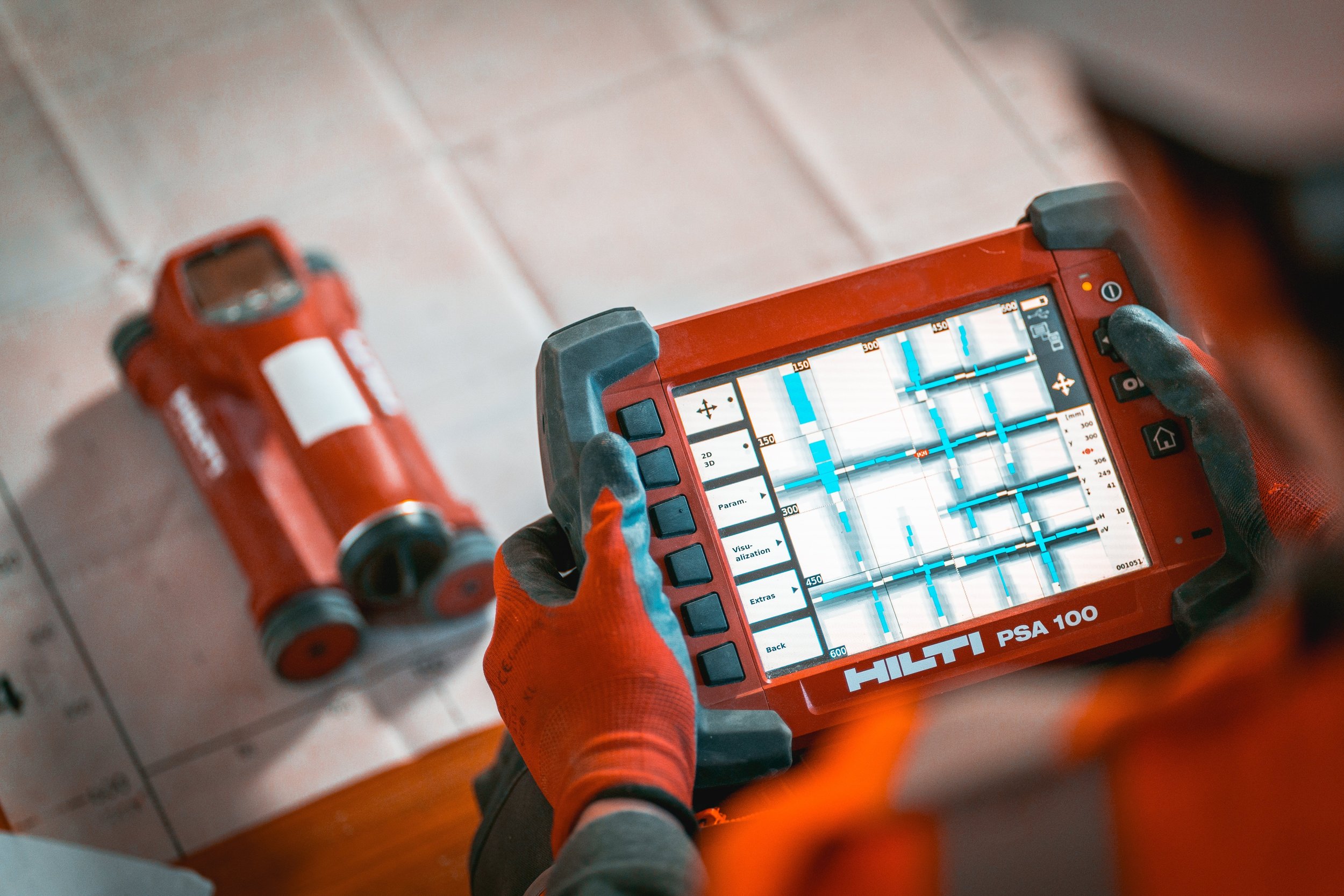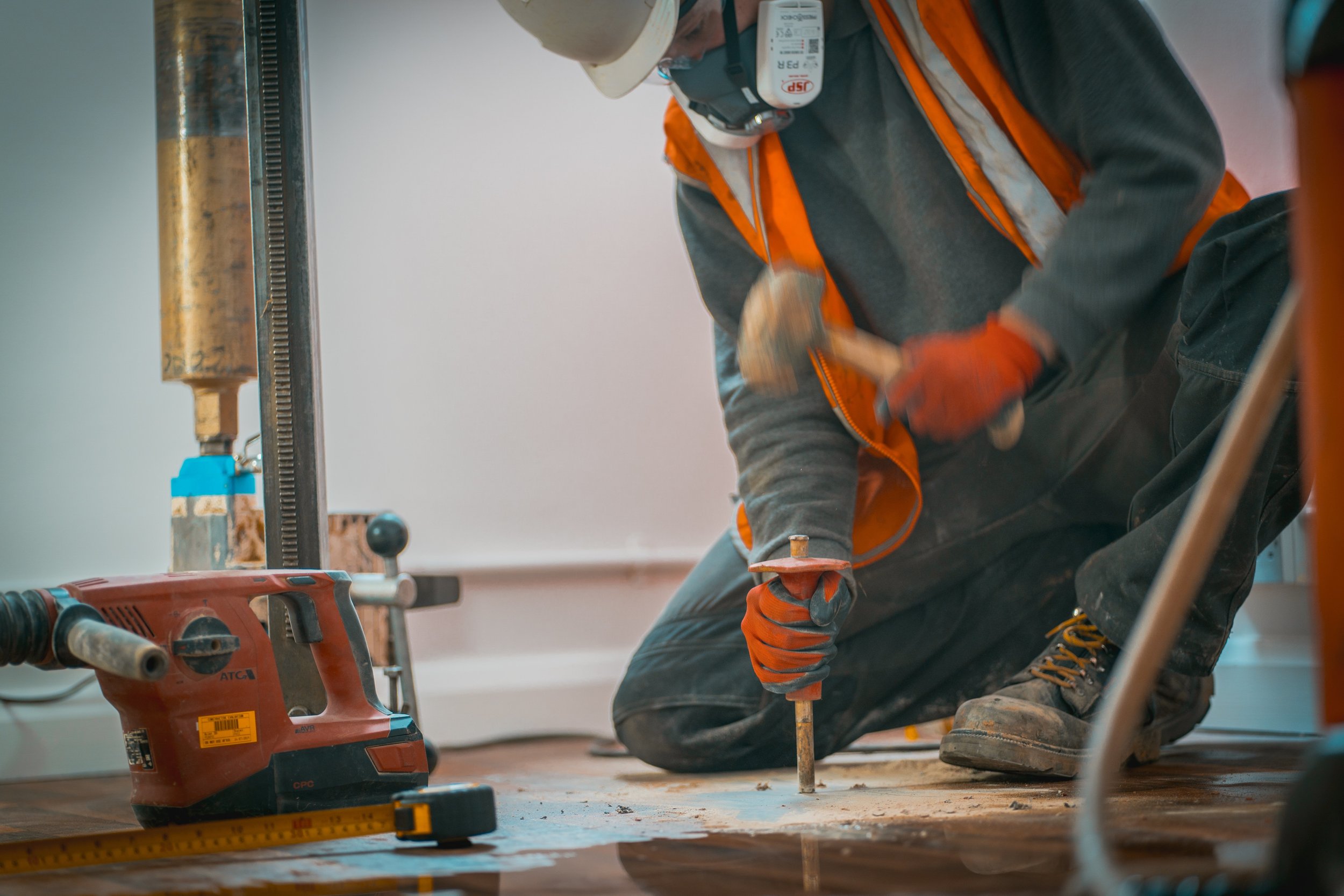
Chloride Ion Content Testing
Chloride Ion Content Testing
Chloride ion content testing of concrete is a crucial assessment used to determine the presence of chloride ions within concrete structures. Reinforced concrete elements are frequently exposed to chlorides, which can originate from various sources throughout the lifecycle of a structure. These sources can include chloride accelerators used during the pouring process, contaminants found in the aggregate material utilised for construction, or post-construction contamination due to dissolved chloride salts.
How Do Chloride Salts Effect Concrete?
Chloride salts often appear in moisture and are known to significantly accelerate the corrosion of embedded reinforcement bars (rebar). This corrosion leads to the formation of rust, which expands within the concrete matrix and can result in spalling, a condition where concrete flakes or chips off. Such deterioration not only affects the structural integrity, durability and longevity of concrete, but it also compromises the aesthetics of the concrete surface.
What Can Be Done About Chloride Salts?
To assess the risk of defects associated with chlorides, it is critical to carry out Chloride Ion content testing. This process adheres to the standardised methods outlined in British Standard BS 1881. These tests provide valuable insights into the chloride profile throughout the concrete elements, thereby enabling the evaluation of potential degradation due to chloride exposure.
Typically, the determination of chloride content is performed alongside a survey of concrete reinforcement cover and carbonation depth. This comprehensive approach aids in assessing the general condition of the concrete elements and forecasting their future performance.
All samples collected by our expert technicians are analysed at a well-established and accredited laboratory, ensuring the accuracy and reliability of the results.
Contact Us
Regular chloride ion content testing is essential for maintaining the integrity of reinforced concrete structures, especially in environments prone to chloride exposure. By identifying high chloride levels early, preventative measures can be implemented to enhance durability and extend service life, ensuring safety and reducing maintenance costs. For further information or to discuss additional testing options, please contact us using the form below or visiting our contact page here. Click here to find out about what other concrete testing services we can offer you
Our Services
Please Click on the tiles below to find out more about the services we offer
Contact Us
If you have any queries about any of our services please contact us, a member of our team will be happy to advise.





